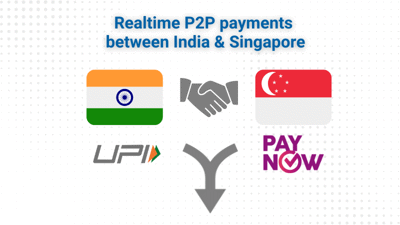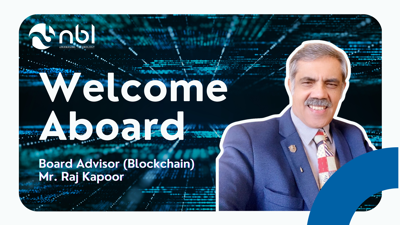Cloud Service challenges and its solutions

Challenges in Indian Cloud Security
The dusk of demonetization brought an unexpected surge among the masses using, trusting and praising the easy-to-use, compatible, and quick digital payments apps. The advent of cheap data (courtesy of Reliance Jio a year before) assured that mobile internet users neither have to lighten a heavy pocket nor have to sink a heavy heart. With the Government launching BHIM App, the competition amidst Paytm, Freecharge, Mobikwik and others fuelled the growth with heavy marketing budgets spent both on the ground and digitally. Most of the major Banks also boasted up their websites and digital infrastructure, encouraging the customers to use it more and more, in order to decrease the load on its physical branches. Blockchain technology and crypto currency also made it into the world news, ringing its bells of introduction into India while platforms related to Insurance sector like PolicyBazaar also grew up.
An obvious question arising from the events was about the safety of all these processes. What if the crucial account details are leaked? What if the profiles are hacked and information stolen? What if the most urgent hour needs bring with itself technical failures? For the laymen middle-class Indian, even the simplified processes of initiation also proved to be confusing. And when there is money involved in the act (sometimes even a lifetime of savings), the complexity only seems to be growing on psychologically.
During all these, we also witnessed the Supreme Court upholding the Right to Privacy and whole Aadhar Row. Rumours about the breaching of intimate details of millions of users and strict rules to compulsory linking Aadhar with various other documents and bank accounts created a heated controversy. In the end, the Supreme Court judgment making some norms unnecessary and making the control tighter over the information source broke the Business Models of many Fintech companies and relieved millions of customers.
Even after all this, all that the Fintech sector today in India can proclaim in the words of Robert Frost is that ‘But I have promises to keep. And I have miles to go before I sleep.’ Here we will have a quick glance around the major challenges surrounding the Cloud (Global network of servers with a unique function) security in India and the possible solutions tackling them.
1] Data Breach
A gate-crashing hacker can cause a lot of trouble by accessing and exposing confidential data. These spills of sensitive information can harm lives and reputations that can take years to repair. In Fintech industry especially, such ignorant errors or intended attacks can reveal details of financial transactions that can harm the company and its customers in many ways.
2] Malware and Data Loss
Sudden attacks from external viruses can leave the system corrupt, also opening up the windows for eavesdropping in the private content of the user. These assaults can leave the whole system into shambles, creating a huge loss of time, money and energy of the organization.
It can also create a rippling effect of an ever-increasing proportion that can threaten other connected ecosystems as well. Apart from that, data could also be lost due to accidental deletion by an employees or natural calamities causing harm physically. To prevent such depletions, an extensive network of back up options must be created, effective anti-virus systems must be installed that are regularly updated and creatively uncomplicated methods of journaling the data must be adapted.
3] Insufficient due Diligence
Hiring incompetent technical coders and developers might be a successful way of cost-cutting but not while considering the long-term scenario. Carelessness by the staff in selecting a cutting-edge software, ignoring the warnings or lack of comprehension or knowledge can lead to terrible threats.
Also, other employees may log into systems from various devices without bothering to log out. Some may also maliciously share the data to competitors in order to receive personal gains. An extensive and effective training should be given to the newly joined staff after a rigorous selection process. Also, a full-time experienced quality and safety manager must be recruited to ensure that there is no negligence in the day-to-day process. Strong passwords and multi-layered authentication steps can also help to curb this issue. The standards and morals for ethical conduct should always be high within the company.
4] Compliance and APIs
The third-party vendors and service providers might not be untrustworthy in their delivery. The software may be lacking latest updates and may not be satisfactorily certified to perform the tasks they are supposed to. The rules and regulations of the country that is served by the company should be followed completely.
Application Programming Interfaces are used to interact with cloud services, and they help to customize features to fit business needs. All the compliances with respect to the field of work must be thoroughly checked before engaging in any deals of software inclusion and adequate controls, security focused code reviews and an effective penetration testing can keep a check on APIs removing all the bugs at regular intervals.
With Government’s push towards financial inclusion through Jan Dhan Yojna and digital inclusion through Digital India and global inclusion, through Make in India, the future of Fintech Industry seems to be getting only brighter day by day. There is also an increasing penetration of awareness regarding investment options like Mutual Funds through repeated promotions and advertisements. Also, related industries like E-Commerce, Ed-Tech, online transportation and food delivery apps gaining huge acceptance amongst the masses are heavily depended on the flourishing services of Fintech.
Considering all this, every possible effective measure must be accepted, adapted and acted for the prosperity and nourishment of cloud services used by the future of Indian IT Services.
























